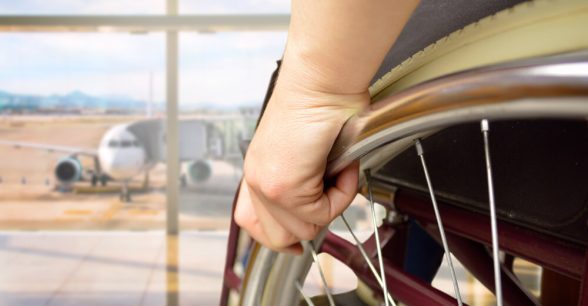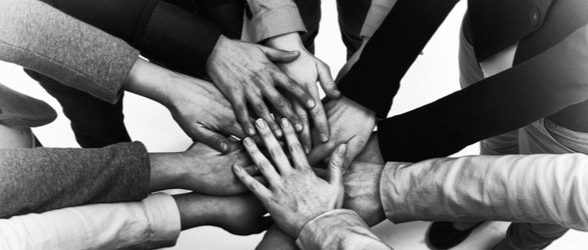Chasing the “High” of Disability Activism
In high school I had a science teacher, “Doc,” who several times throughout the year said that he could get high off the subject he taught – earth space science. This was his way of saying he was passionate about the topic and I always liked that. Over the years I’ve begun to realize that the thing that I “get high” from is talking about disability. It doesn’t even have to be advocacy related in any way. I could be swapping stories and life hacks with a fellow wheelchair user and I’d still leave the conversation with what I can only describe as a buzz.
It’s been this way for as long as I can remember. Trading information and experiences with people is a thrill for me, especially when I know that I have left that person with some of my knowledge of disability and the disabled experience as I’ve lived it. It’s my high and I chase it. But lately I’ve realized that I chase it in very specific ways. Like I said, I talk to friends and we swap stories and share tips and tricks we’ve picked up. I also speak to small groups publicly, mostly in educational settings, (most recently this has meant me, in a room with groups of around thirty middle-schoolers, trying to explain a neural tube defect in laymen’s terms). I blog, intermittently. I have also been known to share disability related articles and videos on social media in the hopes of stirring up some conversation about the disability community and the issues we face on a daily basis.
One thing that all of these methods have in common is that by and large the attitudes I encounter are of people with like minds, or sometimes, a person I helped form an opinion on the given subject. In essence, they’re safe. I have yet to encounter very many people who have outright disagreed with me or were in any way hostile toward me for my opinions. That has, I’ve noticed, had an interesting, possibly adverse, effect. When I venture into threads and posts written by other people – not always my friends’ – I don’t feel like I belong in the conversation. I don’t share the same experiences of being called out or argued against. I feel like a fraud, or at the very least that my mettle is supremely untested.
It is this odd kind of impostor syndrome that has in so many ways stunted my growth as a member of the disability activism community in recent years. As if my experiences, my past, is worth less because it is different from others, and honestly I don’t know how to get past that. Am I destined to trudge, like Paul Bettany’s Chaucer, through the mud of self-doubt? These emotions continue to be such a huge barrier for me that I rarely even feel like I can talk about it. So I don’t even know if this is something other people have experienced and it’s just something I have to work through, or if I’m an outlier and just not cut out for adult activism.
I sincerely hope that the latter does not turn out to be true. I love being an active part of the disability community. I love our people, our shared experiences. I thrive on the exchange of information, both within the community and without. I’d like to think – no, believe – that I’ve been an important part of that exchange in my own small way. I’m not there yet, but maybe someday I will be.
About Rooted In Rights
Rooted in Rights exists to amplify the perspectives of the disability community. Blog posts and storyteller videos that we publish and content we re-share on social media do not necessarily reflect the opinions or values of Rooted in Rights nor indicate an endorsement of a program or service by Rooted in Rights. We respect and aim to reflect the diversity of opinions and experiences of the disability community. Rooted in Rights seeks to highlight discussions, not direct them. Learn more about Rooted In Rights



